After an otherwise dynamic weekend where I spoke at the Brown University “Black Hair in White Spaces” event (write up, pics and video coming soon!) and helped facilitate the first “All Sisters Evolving Together ASOMGirls Program Mentoring Day” (yes, this write up is coming too!), I was in my Black Girl Element and was feeling empowered and hopeful about my community.
Then…I saw this meme featuring yours truly:
And I was reminded that our work is so not yet done.
Because once again, my picture was being used as part of a meme to represent the type of natural Black hair that is undesirable. Even for natural Black women.
A Picture Is Worth 1000 Words
I have to be honest with you. Considering the history of this photo, I’m used to getting random emails and social media notices where people let me know that this picture is featured in some ad or on some website or another. But it’s still jarring to be reminded that an image of your hair (let alone an image that you actually like) can be used as a valid symbol of what our community has been taught to despise.
It is an especially prickly moment when the people sending the image around also happen to be Black.
The ass-hat “brotha” who was pushing this particular image has a twitter stream full of some of the most diabolical things one can say about Black people in general and Black women in particular. So it makes sense that this is the type of person who would send around a meme using pictures of Black women this way.
And even though dude was trying to be mean, what’s sad is that his sentiments are really just a more extreme version of the way that many of us were taught to feel about our hair (and skin color, and noses, and lips, etc.). As pathetic as he was, at least he was bold enough to publicly state how he really feels.
Conversely, many of us secretly agree with these concepts and pray that our type 7G kinky, nappy, coily hair will somehow transcend the pulls of Mother Africa. More than a few of us long for the day we can find a way to make our “natural” hair cascade down our back as opposed to standing up on our heads…and still get to claim it is “natural.”
None of this is our fault. But family, we have to remember: Black hair grows up and out towards the sun. Not down. And that is ok.
Been There, Thought That
As I discussed in my book Afro State of Mind: Memories of a Nappy Headed Black Girl, when that picture first began circulating, I read a lot of social media comments that went something like this:
She has the face for natural hair, so going natural probably wasn’t an issue for her.
I would go natural, but only if my hair could look like that.
I love her hair on her. But I could never wear my hair to work in that style.
I would wear my hair natural, but no Black man is ever going to marry a woman with hair that looks like that.
These types of comments surprised me because as much as I viscerally rejected them, I also understood exactly where they were coming from. Yes, I was happy to be nappy, now, but there was a time in my own life when I felt those very sentiments and had the exact same critiques of other women who wore natural hair. It was a surprising reminder that no matter our hair texture or political affiliation as Black women our hair is still vitally central to how we see ourselves. It was also clear that collectively, we lack a framework for understanding how our hair and society’s response to it, shapes a significant part of Black identity.
When I wrote about Sheryl Underwood’s (a Black woman comedian) crass statements about Black hair being “nasty,” I noted that:
Even though my story is personal to me, my experiences as a Black girl aren’t unique. We are all—Black, White and otherwise—bombarded on a daily basis with messages that tell us that being Black is the least valuable. We are surrounded by a 24/7 message machine that pumps out a consistent message: “Black skin/culture/hair/features/life are less than.”
Now, I too grew up in a household that instilled Black pride. Like Underwood I had parents, aunts and uncles who did their best to present a different message about Blackness. I was given books, exposed to history and taught to see myself as descendant of a strong and beautiful people.
But I still wanted “good” hair and I still thought light skin and light eyes were more valuable. I could rattle off facts about Black history…but that did not necessarily translate into believing that my own very kinky/coily/nappy hair and skin were pretty.
Meme’s like this are a stark reminder of what we’re up against as a community. It’s a reminder of the strength of the White supremacy and Black inferiority marketing campaign.
You Are the Result of What You Think About
When my company provides workshops on culturally responsive teaching we often say that one of the worst things about slavery is not how other people see us or treat us, but how we as Black people have been taught to see ourselves and treat each other. The success of slavery depended on convincing White people that they were superior and that Blacks were inferior.
But what we don’t often focus on is that slavery also had to convince Black people of the same thing.
“As uncomfortable as it is to believe, slavery didn’t just turn White people into White supremacists. It essentially created a cultural value system that turned me into one too. My indoctrination had turned me into someone who valued Whiteness above all else. As a result of actually believing the negative messages about Blackness and the positive messages about Whiteness I had essentially turned into a high functioning Black White supremacist…”
The more I travel and speak out about these issues the more I realize that this is true for people of African descent throughout the Diaspora. We have to remember that:
The messages that galvanized the White community around the idea that they were superior had a powerful influence on Black thought. Black culture was (and still is) targeted with the messages that proclaimed Black inferiority. Black culture became susceptible to the programming that declared Whiteness was more valuable. How could it not? What cultural tools were there that the masses of Black people could have used that would have prevented buying into this concept, en masse?
What books could enslaved Africans turn to for lessons about the legacy of their historic greatness—a history that belies any notion of Black inferiority? None, since getting caught with a book could literally cost you your eyes if not your life.
What houses of worship could they attend where they saw their own reflection in the image of the deity? None, since most states regulated what type of sermons could be preached to Black people … and required oversight of Black preachers by White overseers who had to pre-approve the substance of the message.
What stories could enslaved Africans tell themselves that would counter the lies that said they were inferior? None, since slave masters made sure Africans stopped speaking their languages and severed their connections with the stories and belief systems that said they too were a reflection of God. Blacks were stripped of all of the cultural tools and rituals that healthy people and societies normally use to help them cope in times of trauma.”
Without the protection of culture, and facing some of the most extreme brutality known to man, enslaved Africans—and today their descendants—were not able to collectively reject the messages of Black inferiority that saturated the air around them.
How to Make Slavery “Successful”
Every time I see Harriet Tubman’s quote “I feed a 1000 slaves. I could have freed a thousand more had they known they were slaves,” I’m reminded of this phenomenon. Harriet, aka the Moses of Her People, was limited in her ability to help free her people because too many of them had been forced to accept that “slave” was their appropriate status.
Far too many Black people—and particularly men like the “brotha” who posted that meme—struggle with feelings of inadequacy because of messages first formed during slavery and colonization.
Far too many Black people believe that “inferior” is the appropriate designation for natural Black hair.
Far too many Black people believe that “inferior” is the appropriate classification of dark Brown skin.
Far too many of us bemoan the fact that neither our bodies, our hair, nor our skin color can possibly fit within the paradigms of a beauty standard that doesn’t include us.
What most of us fail to realize is that this “beauty standard” was explicitly designed to exclude non-White people. The European “beauty standard” was one of the many weapons used by White people in order to keep the justification for slavery going.
But, as I’ve said before on these pages: the hardest thing to do is to love a people taught to hate themselves. Which means that being fierce in our embrace of Black community love is one of the most important things we can do.
Let me say that again this way: When your people were taught to hate who they are, because of who they are and how they look, then you must expect that they will hate you too. And you must know that and choose to love them anyway.
We must choose to love Black White supremacists harder then we were taught to hate Blackness. Because it is pervasive anti-Blackness—both from outside and from inside our community—that is at the root of our pain.
Pro-Black love is at the root of our healing.
This is the only way that we can hope to create enough space for people like the creator of this meme to grow. Loving our people is the only way that we can tap into the humanity that White supremacy, slavery and colonization tried to beat out of us.
We have a lot of work to do.
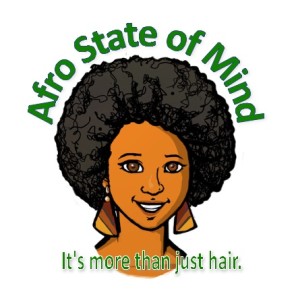
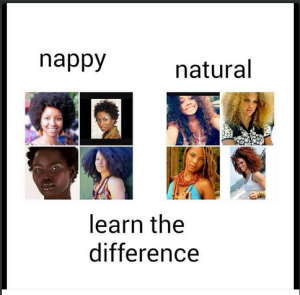
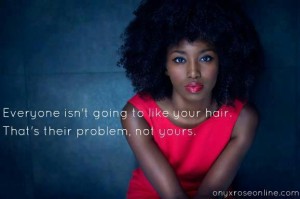
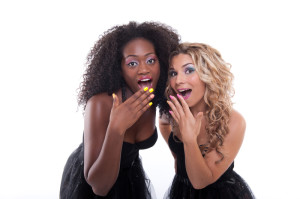
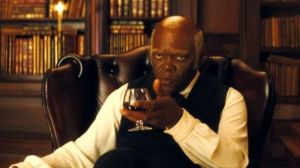
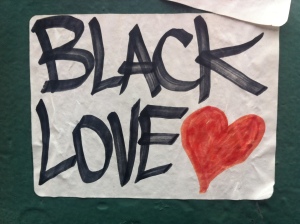


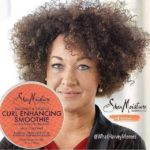
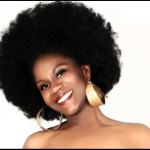
So profound. You are correct that the work towards self love is a necessary step. I’m sure when I go out that everyone is not going to love my hair, but I love it enough for me and them.
I liked your article, but you LOST me when you started blaming “whitey” for shit that grown ass, “I do what I what” consious black people make. If someone is abused by a parent, they grow up and GET HELP get counseling, take responsibility for their own shit! They dont keep blaming the damn parent for every poor fucked up decision they make so they can ESCAPE responsibility. Black people need to take responsibility. Black men make the decision to HATE BLACK FEMALES, they hate us not all BUT MOST and they show it again and again an again. Yet somehow its “predispositioned” and the WHITE MAN’S fault. News flash. THE BLACK AFRICANS sold the blacks to the white people during the Atlantic slave trade, our own BLACK people. News flash it still goes on today “Hotel Rwanda”. Black Americans especially act like people owe them and like they are the ONLY ones who experience racism and slavery. It sickening, cause Black men, chose to abandon their women and children in DROVES since especially the 70’s!! Blacks blame whites for everything! Even the drugs in the community and the rap music its all a big “conspiracy”. How about this, Black people are fucked up and destroy each other with little to no regard for their children, women or community. Black men have children with Puerto Ricans, Mixed Chics, and every other non black chic and RAP ABOUT IT, brag about it, shake their dick about it! No bottom. I liked your article but its not whitey’s faulty. Black people are fucked up period.
I am especially fed up with the picture of the mixed chic supposed NATURAL HAIR, BS, again Black men HATE the darker black woman, period. Black women bring each other down. I love the darker chics its what a REAL black authentic pretty girl/woman is… We have to keep making our OWN and not wait for anyone to VALIDATE take our own shit and screw everyone else.
This is a wonderfully written piece, with many valid points. I love your hair and think you are just gorgeous. ❤️
Wow! We definitely do. I guess it takes all types (and I’m glad you didn’t add any links and give any more attention to his platform – whoever he is). We’ll just have to pray that the scales fall off eventually. In the meantime, you brought such light to his very ugly intentions. You must be doing something wonderful because why else would the devil try to break your stride. Stay positive! That’s your beauty. Great post!
I agree with Tonia. Self love is very important. It makes me sad that many of our own people do not see beauty in ourselves. We can surround ourselves with pictures, beautiful black people, our rich history but I feel like it is not enough. I do not know of other solutions because it overwhelming at times, trying to explain to other black people we are enough and beautiful. I wish people can see what I see when I look at our people.
There literally is no hope for black people who suffer from self-hatred and life is too short to even waste time on trying to love self-hating people.
The “brotha” who created this meme is completely powerless and the only power he thinks he has is the power black women give him by needing his validation and the attention given to his insults. You do not give the powerless any power they have not earned, nor the attention.
As a woman who’s worn my hair as it grows from scalp for four decades, I often don’t comment on the divisive tactics that I see online because it is pointless. What I do see is just like you said: “We have a lot of work to do.” Good luck!
You are very right. We have a looot of learning and unlearning to do. Man, this is so beautifully written. I’m ashamed to say i was a black white supremacist myself once upon a time. I wish i had women like yourself and platforms like these growing up. Would’ve saved a looot of self hate.
Mvumikazi | Urban Mnguni
We have a lot of work to do. Slavery still enslave our minds a century later. I watched a great You Tube video of a black woman that stopped and got out her car to point out how Hispanics and Asians owned several businesses on a strip in Florida. She stated it was predominately white when she moved in, but had transcended to the current state. Her questions were directed at us, and asked why we couldn’t unify and do the same. We need a niche as black people. Our mentality is still so fragile, we can’t unify. The meme is just an example of that. We are beyond talented, but we need to find our niche, and put aside our internal pains and baggage so that we can overcome some of our obstacles we face.